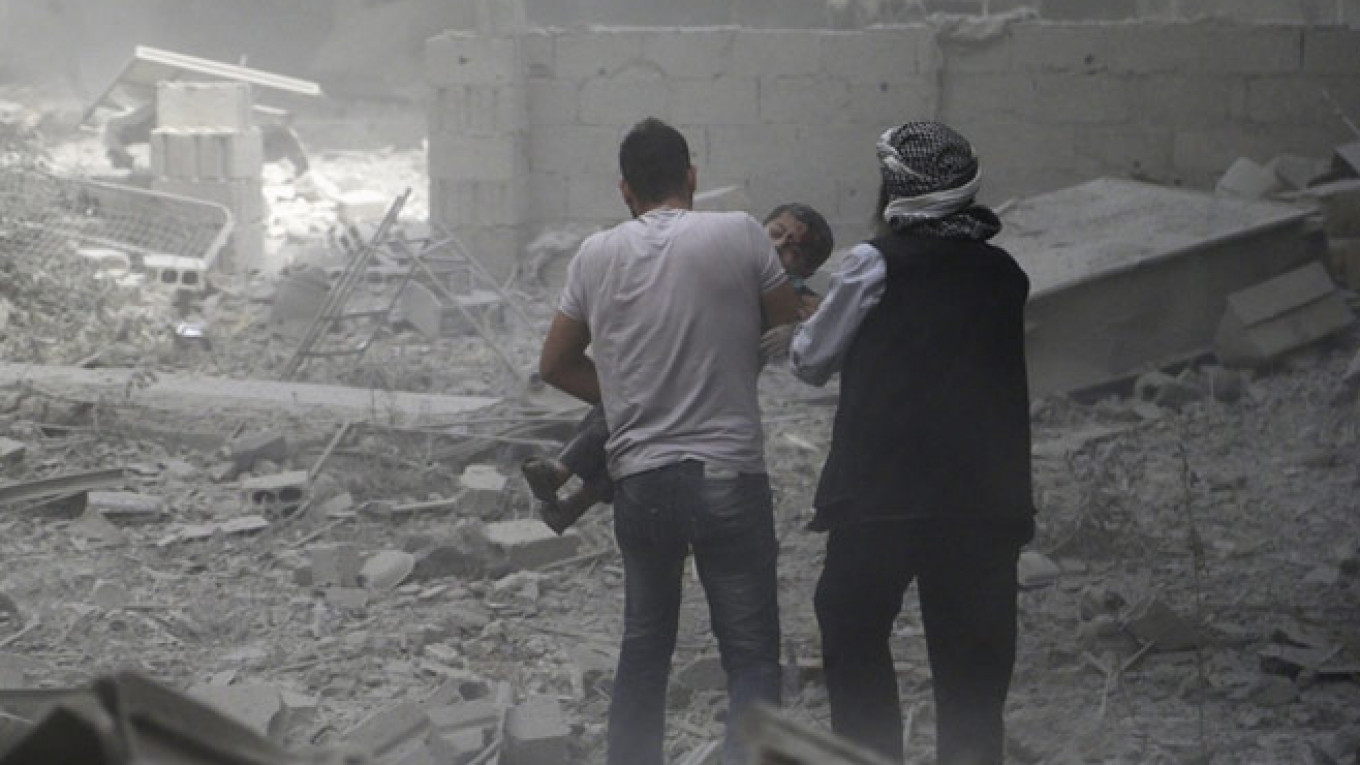According to a number of sources, Russia has increased its military presence in Syria. The international community has been debating why on earth Moscow would do such a thing and Russia continues to deny it.
Commentators put forward a wide range of theories, some very exotic. For example, they suggest that President Vladimir Putin wants to destabilize the situation in the Middle East in order to raise the price of oil. Or that he is deliberately aggravating the situation to increase the flow of refugees to Europe.
Or that he plans to offer participation in the anti-Islamic State campaign in return for recognition of Crimea and the separatist regime in eastern Ukraine. ?
Or that Putin hopes in this way to force U.S. President Barack Obama to meet with him during the UN General Assembly session.
Or else that he wants to protect the regime of Syrian President Bashar Assad at any price because all of his predecessors dating back to former Soviet leader Leonid Brezhnev have bequeathed him that almost sacred duty.
Indeed, I recently found a fascinating video on The Associated Press channel on YouTube showing the greeting that former Syrian President Hafez Assad — the father of the current leader — received when he flew to Moscow on April 11, 1974.
Amazingly, the entire Soviet leadership stood on the tarmac waiting to embrace Assad: former General Secretary Brezhnev, former Prime Minister Alexei Kosygin and head of the parliament Nikolai Podgorny. It was unprecedented. Ordinarily, an arriving dignitary met and embraced the Soviet leaders at the Kremlin, not as they disembarked from their plane.
Of course, the reason for this unusual display was to reinforce Soviet propaganda claiming that Syria had just achieved victory over Israel in the Yom Kippur War.
Of course, Syria did lose the Golan Heights in that conflict, but the aftermath of the war resulted in the resignations of former Israeli Prime Minister Golda Meir and former Israeli Defense Minister Moshe Dayan — two dignitaries the Soviet press had constantly caricatured and ridiculed.
That is, the Soviet leaders received Assad as the undeniable winner of that war and an ideological ally: Brezhnev liked the fact that the party Assad led included the word "socialist" in its name.
Putin couldn't care less about Syrian socialism, especially because it turned out not to be socialism at all, but standard eastern-style despotism. Putin is far more interested in geopolitical concerns.
Most commentators try to understand Putin's logic in terms of the situation on the ground in Syria? and miss what I believe is the main motivator: Russia's domestic political scene.
Putin has yet to put his Syria scenario into action. The curtain has yet to be raised.
Who are the viewers? For whom has Putin arranged this performance? Undoubtedly for the Russian people. Putin is bogged down in Ukraine, Western sanctions have paralyzed the economy, the ruble has fallen and prices are climbing steadily.
But Putin is primarily concerned with his personal rating, and he has learned from repeated experience that he needs to pull off a daring stunt from time to time in order to maintain his popularity.
That's what the people love. Bang! and Russia pushes Georgian forces out of South Ossetia and chases them almost back to Tbilisi. Bang! and the "polite men in green" take back Crimea. Putin was not thinking so much about the foreign policy implications of that move as he was of boosting his rating.
Waging war against the Islamic State? No, that's too serious. Putin doesn't want that. Use his own body to shield Assad from NATO bombs? Hardly. No, Putin has another plan in mind, and presently we will all see the latest production by the Putin Company Players.
Andrei Malgin is a journalist, literary critic and blogger.


